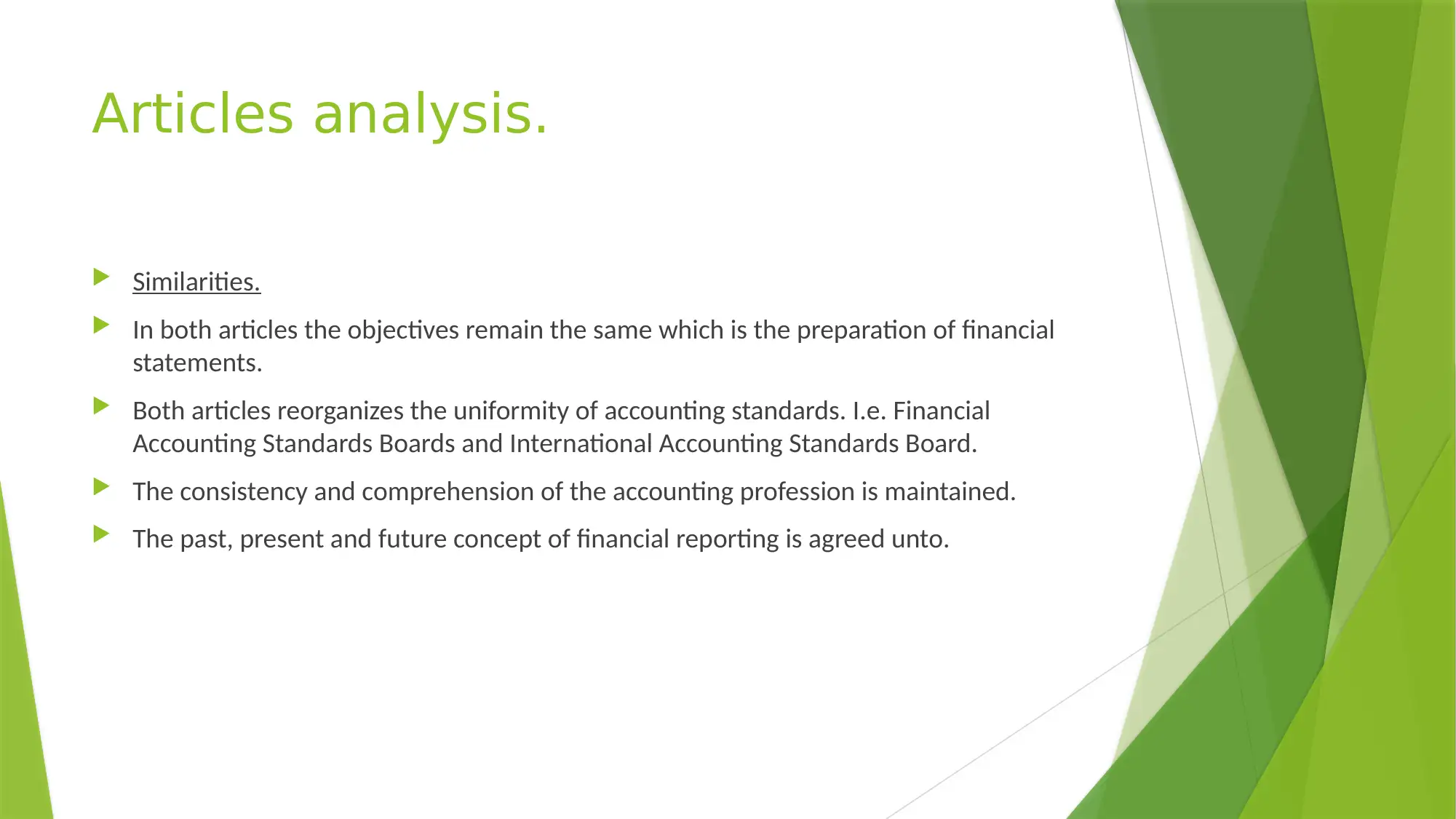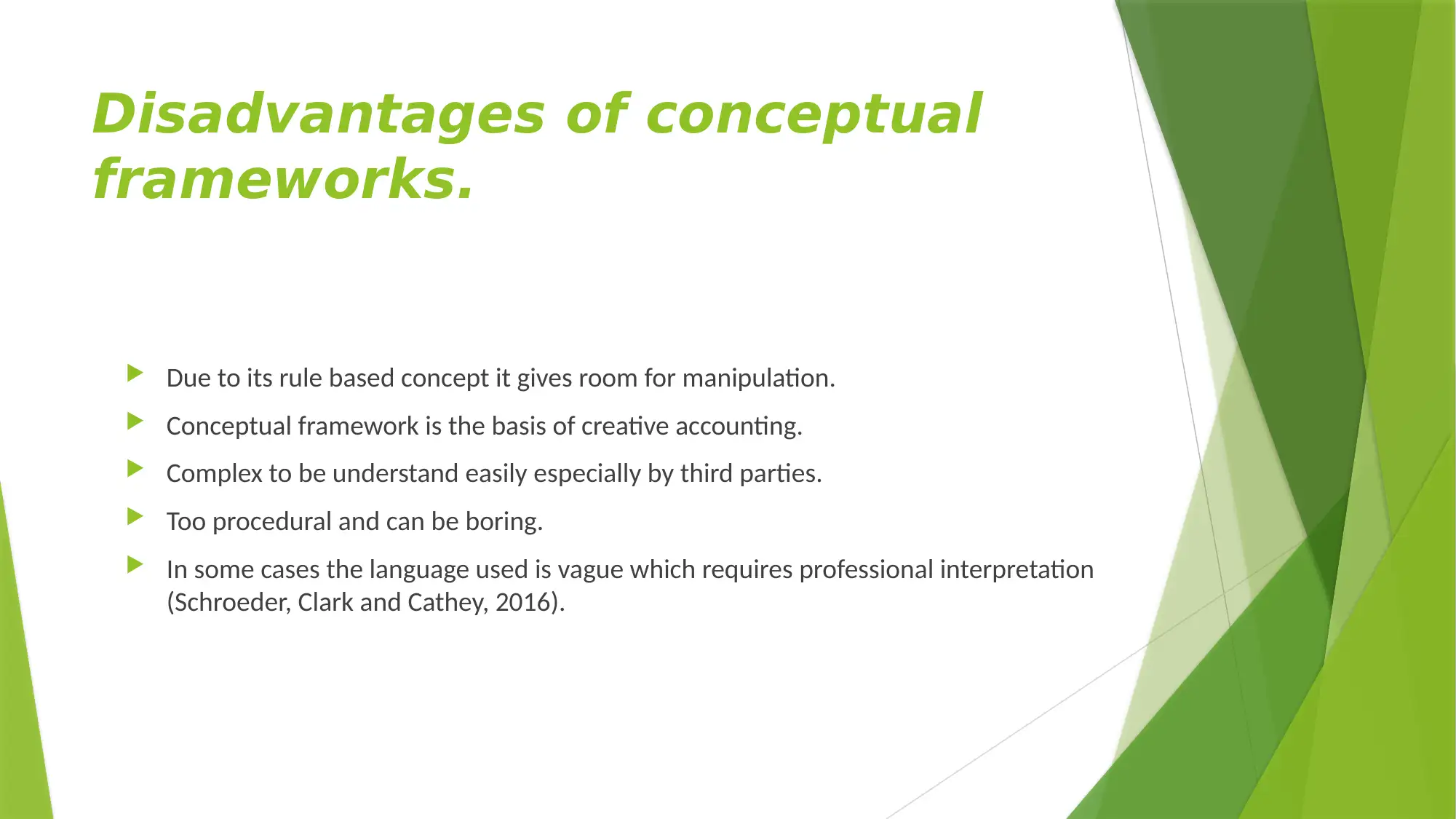Conceptual Framework Application in Australian Accounting Profession
VerifiedAdded on 2023/06/04
|7
|536
|86
Report
AI Summary
This report delves into the conceptual framework relevant to the Australian accounting profession, examining its fundamental role in shaping accounting standards and financial reporting. It explores the objectives and development basis of these frameworks, emphasizing their importance in maintaining the integrity and uniformity of accounting practices. The analysis includes a comparison of two research articles, highlighting similarities in objectives, such as financial statement preparation and standard uniformity, while also addressing the framework's advantages, like its role as a simplified form of IFRS, and disadvantages, such as potential for manipulation and complexity. The report further discusses the framework's necessity in the context of technological advancements and international requirements, outlining its purpose in harmonizing procedures and assisting stakeholders in interpreting and applying international standards. Implications of research findings are provided to inform external reporting stakeholders.
1 out of 7














![[object Object]](/_next/static/media/star-bottom.7253800d.svg)